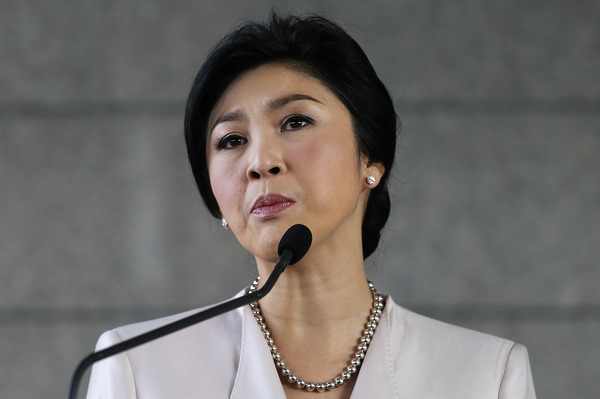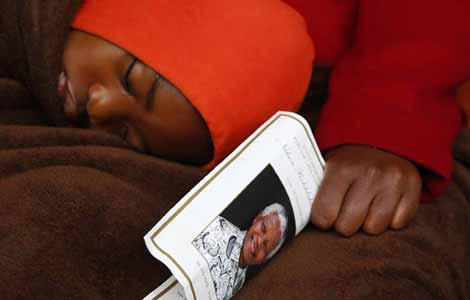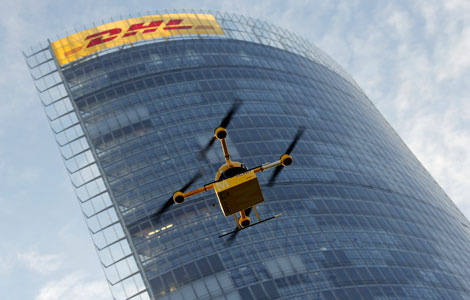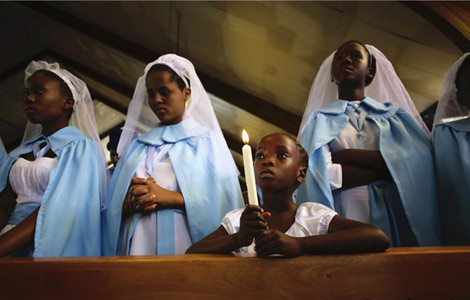

BANGKOK - Her eyes welling with tears, Thai Prime Minister Yingluck Shinawatra pleaded on Tuesday for anti-government protesters to clear the streets after she called a snap election, but protests leaders said she should step down within 24 hours.
 |
|
Prime Minister Yingluck Shinawatra answers questions from the media during a news conference after a cabinet meeting at The Army Club in Bangkok December 10, 2013. [Photo/Agencies] |
After weeks of sometimes violent street rallies, protesters dismissed her call on Monday for a general election and said she should be replaced by an unelected "people's council", which has stoked concern that Southeast Asia's second-biggest economy may abandon the democratic process.
Yingluck insisted on Tuesday she would not step down and said she would continue her duties as caretaker prime minister until the election, which is set for February 2.
"Now that the government has dissolved parliament, I ask that you stop protesting and that all sides work towards elections," Yingluck told reporters as she went into a cabinet meeting held at an army club. "I have backed down to the point where I don't know how to back down any further."
Tears briefly formed in her eyes as she spoke, before she quickly composed herself - perhaps a glimpse of the emotional toll of weeks of protests.
The protesters, a motley collection aligned with Bangkok's royalist elite, want to oust Yingluck and eradicate the influence of her brother, former premier Thaksin Shinawatra, who was toppled by the military in 2006 and has chosen to live in exile rather than serve a jail term for abuse of power.
Thaksin was convicted in absentia of graft in 2008 but he dismissed the charges as politically motivated. He is widely seen as the power behind Yingluck's government, sometimes holding meetings with the cabinet by webcam.
Yingluck, a 46-year-old former businesswoman, had no political experience before entering a 2011 election she won by a landslide thanks to votes from the countryside, where Thaksin built up a devoted following with policies to help the poor.
In a speech to supporters late on Monday, protest leader Suthep Thaugsuban gave Yingluck 24 hours to step down.
"We want the government to step aside and create a power vacuum in order to create a people's council," said Akanat Promphan, a spokesman for the protest group. Suthep has said this council would be made up of appointed "good people".
By mid-afternoon on Tuesday, only 6,000 protesters were in the historic part of Bangkok around Government House where Yingluck's office is located, police said, a far cry from the 160,000 that converged peacefully on the complex on Monday.
Tuesday was a public holiday in Thailand and Yingluck attended a ceremony to mark Constitution Day in parliament but only about 1,500 protesters turned up there, police said.
"THAKSIN REGIME"
Yingluck's Puea Thai Party enjoys widespread support in the populous north and northeast, Thailand's poorest regions. The party said she would again be its candidate for prime minister.
In contrast, the protesters are drawn from Bangkok's royalist upper and middle classes, including civil servants and prominent business families, along with people from the south where the opposition Democrat Party has long held sway.
"What we're seeing is a true power tussle with both sides, the government and the protesters, trying to pull the country's two most powerful institutions - the monarchy and the military - on their side," said political analyst Kan Yuenyong at the Siam Intelligence Unit.
"The best scenario would be if the protesters and the opposition accept the election and take part, but anything could happen between now and then including intervention from independent organisations, the judiciary or the military."
The politically powerful army, which has staged or attempted 18 coups in the past 80 years, has said it does not want to get involved, although it has tried to mediate.
The spark for this latest unrest was a government bid last month to force through an amnesty bill that would have expunged Thaksin's conviction, allowing him to return home a free man.
Protest leader Suthep's overriding aim is to get rid of what he calls the "Thaksin regime" - the family's influence on politics, plus the people placed in senior positions in state agencies and the police who are believed to answer to him.
In rambling speeches he claims Thaksin and his family have hijacked power to serve their own interests, not the nation. But beyond the need to bypass an electoral process likely again to return a pro-Thaksin government, his programme is sketchy.
He has spoken of police reform and the need to end what he sees as wasteful, corruption-riddled programmes such as a rice intervention scheme and huge infrastructure projects.
Lawmakers from the opposition Democrat Party resigned from parliament on Sunday and its leaders have not decided whether to take part in the election. Some have marched with Suthep, including Abhisit Vejjajiva, who was prime minister until the 2011 election, with Suthep as one of his deputies.
In April 2006, amid mass protests against Thaksin, the pro-establishment Democrats refused to contest a snap election he had called. Thaksin was deposed by the military five months later.
Suthep's campaign opens up the prospect of a minority of Thailand's 66 million people dislodging a democratically elected leader, this time without help from the military.







